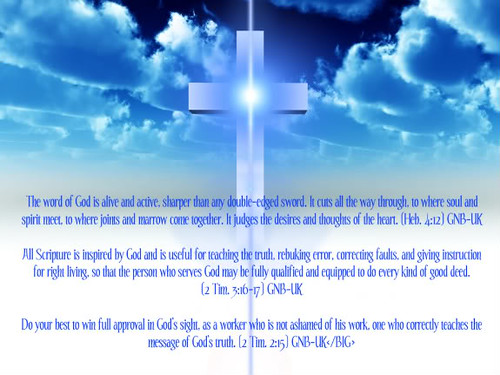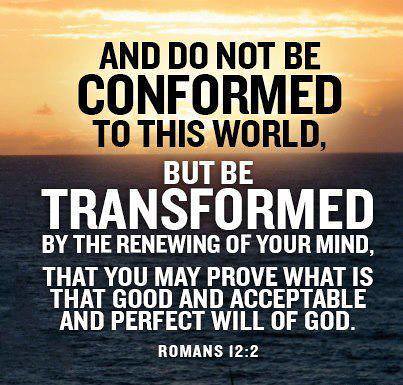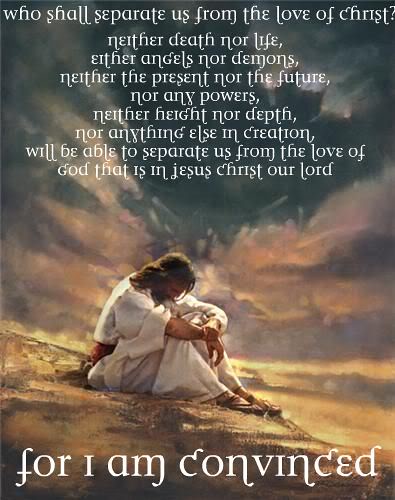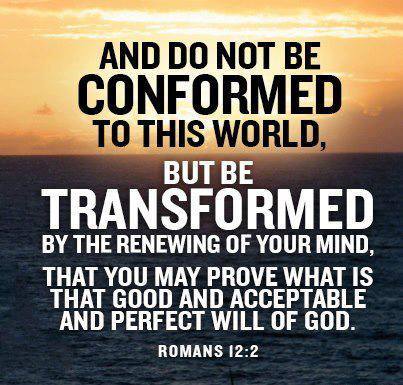The Doctrine of Imputations.
Scripture References, Word & Phrase descriptions: the “Logos Reftagger” scripture links are hover pop-up active, meaning the scripture reference will just pop-up if you hover your cursor over it (don’t click on the link, just hover your cursor over it), when finished reading, hover your cursor off the scripture reference link. If the Reftagger pop-up doesn’t show all the verses, left click on the “More” button in the Reftagger pop-up window and it will take you to the online bible. If RefTagger pop-ups don’t work on your computer, that’s OK, try left clicking the link if it’s highlighted which should open a window with all the verses at the Biblia.com website; or if that doesn’t work, you can always use your Bible to look up the verses. Word or Phrase definition links may not have a website that opens. If you are running PCMatic, the pop-ups may not work; if that’s the case, email PC Matic Support to see if they can fix that problem for you.
Prepare yourself for learning the Word of God!
Before we begin, if you are a believer in the Lord Jesus Christ (that is; you have believed [trusted] in Him for His promised gift of eternal life), it is important to prepare yourself to learn God's Word so take a moment to name, cite or acknowledge (confess) your sins privately to God (i.e.; with your thoughts directed only to God the Father).
1 John 1:9 says: "If we confess our sins, He (God) is faithful and just to forgive us our sins (known sins) and to cleanse us from all unrighteousness [unknown or forgotten sins]." NKJV (New King James Version) [italics added]; we call this REBOUND, read the full doctrine as to “why” we need to use 1 John 1:9 to grow spiritually. REBOUND
If you have never personally believed in the Lord Jesus Christ, that He is the Son of God, the promised Messiah, as your Savior (that is, believed in Him for eternal life), the issue for you is not to name your sins; the issue for you is to simply exercise faith alone in Jesus Christ alone for eternal life; when you do, you will instantly receive Eternal Life: John 3:16, 5:24, 6:47, 20:30, 31.
John 6:47 says: "Most assuredly, I say to you, he who believes in Me [Jesus Christ] has everlasting life." NKJV [italics added]
Notice again what Jesus said in John 6:47: "…he who believes in Me (Jesus Christ) has everlasting life." It doesn't say, "will have"; it says, "has." Therefore, the very moment you believe in Jesus Christ for His promise of everlasting life, you have it (it's really just that simple; nothing more and nothing less), and it can never be taken away from you (John 10:28-29). Furthermore, the gift (Ephesians 2:8c) of everlasting life (also called eternal life in scripture) is available to every human being; there are absolutely no exceptions.
John 3:14-15, 16, 17, 18, says: "14 And as Moses lifted up the serpent in the wilderness, even so must the Son of Man be lifted up, 15 that whoever believes in Him should not perish but have eternal life. 16 For God so loved the world that He gave His only begotten Son, that whoever believes in Him should not perish but have everlasting life. 17 For God did not send His Son into the world to condemn the world, but that the world through Him might be saved. 18 He who believes in Him is not condemned; but he who does not believe is condemned already, because he has not believed in the name of the only begotten Son of God." NKJV
Let us now bow our hearts and take a moment to prepare for worship and learning God's Word. If there is any known sin in your life, this is the time to just cite it privately to God the Father with your thoughts directed towards Him. With your head bowed and your eyes closed, you have total privacy in your mind and soul:
Study to show yourself approved to God!
Grace Bible Church
Robert McLaughlin Bible Ministries
The Tree of Life is a weekly teaching summary:
God’s Word is taught Wednesday, Friday, and Sunday
God’s Word is taught Wednesday, Friday, and Sunday
STUDY TITLE:
The Doctrine of Imputations.
Imputation is used as an act of God whereby either condemnation or blessing is ascribed, attributed, reckoned, given, or imposed on the human race. Therefore, an imputation is the function of the Justice of God directed toward mankind and related to the plan of God for mankind. Imputation functions as an act of condemnation or blessing from the Integrity of God to mankind. This means that in the Plan of God there are times that God imputes to us things that condemn us and other times things that bless us.
There are three factors in imputation:
a. The source, which is God Himself.
b. The nature of the imputation–which refers to what is being imputed.
c. The recipient of the imputation–which in our study refers to a human being in a specific status quo.
Under this point there are also two different categories of imputations:
The first category of imputations is known as Real imputations, where the justice of God imputes under the principle of the importance of understanding that there is a similarity or a relationship between what is being imputed and where it is being imputed to. What is imputed has an affinity or a home for that to which it is imputed. For example, Real imputations include:
1. human life to the soul.
2. Adam’s original sin to the old sin nature.
3. Eternal life to the human spirit.
4. Blessings in time to the perfect righteousness in man.
5. Blessings in eternity to the resurrection body.
All of these imputations from God, human life; Adam’s original sin; eternal life; blessings in time; blessings in eternity — all have a home or a place to go in man for the imputation. For example, in the first category of imputations there is the fact God imputes or gives to the soul human life. This falls under the principle of not election but selection. At the point of physical birth, you come under the concept of selection not election. God “selected” you to be a member of the human race.
JOB 33:4, “And the breath from God has created me [that is created him as a human being], and the breath of the Almighty gives me [human] life.”
The “breath of God” is life, it is the source of life. The Hebrew phrase is ruach El which is equivalent to the Greek word pneuma meaning breath, spirit, life, and lifestyle. Please note that this statement by Job is after the fall of man in the Garden and states the principle of the origin of human life, which is from God. And that life begins after the human body is formed not before. As we noted concerning the first mention principle in GEN 2:7, Adam’s body was created before God breathe into him the breath of life and then Adam became a living being.
GEN 2:7, Then the Lord God formed man of dust from the ground, [and then after God formed man out of the 16 elements found in the ground then] God breathed into his nostrils the breath of life; and then man became a living being.
The same thing is still true today, the body is formed before God gives it neshamah, the breath of life.
JOB 33:4, “And the breath from God has created me [a human being], and the breath of the Almighty gives me [human] life.”
Job does not say that the copulation or the sexual relationship between a male and female gave him life, does he?
No!
Why?
Because human life comes from God not SEX. Only God has the power to create human life.
This is why the prophet Isaiah said in ISA 44:2, “Thus says the Lord who made [created] you, who formed you [the Hebrew says out from] from the womb, who will help you, ‘Do not fear, O Jacob My servant;”
The Hebrew prepositional phrase translated from is the phrase mi beten and should be translated out from the womb. This means that God formed you or gave you life out from the womb, separated from the womb, outside the womb, or away from the womb. GNT (Good News translation) says ISA 44:2, I am the Lord who created you; from the time you were born, I have helped you. Do not be afraid; you are my servant, my chosen people whom I love.
The Lord is saying I helped you ever since the day you were born not since the day you were conceived. Why? Why does He say I helped since the day that you were born? He said that because He could not help you in the womb because you did not exist in the womb? How do we know that? Well again, look at JOB 3:11-16, “Why did I not die at birth, Come forth from the womb and expire? Why did the knees receive me, And why the breasts, that I should suck? For now I would have lain down and been quiet; I would have slept then, I would have been at rest, With kings and with counselors of the earth, Who rebuilt ruins for themselves; or with princes who had gold, Who were filling their houses with silver. Or like a miscarriage which is discarded, I would not be, As infants that never saw light.”
JOB 10:18-19, “Why then hast Thou brought me out of the womb? Would that I had died and no eye had seen me! I should have been as though I had not been, Carried from womb to tomb.”
Job is saying that as long as he was in the womb he was not a human being but now that he is out of the womb, he is a human being. Job had no human life until God imputed it to his soul. Job is asking why God ever let him become a human being.
JOB 10:19, “I should have been as though I had not been, Carried from womb to tomb.”
Job describes the limits of life as: out from the womb and to the tomb. Human life exists out from the womb (birth) to the tomb. The limits of human life are from birth to death. This is the sphere in which the angelic conflict is being resolved. There is no resolution to the angelic conflict inside the womb or inside the tomb. God gives human life at birth, and takes it away at death. We were given life to resolve the issue of the angelic conflict.
The womb is not a part of the angelic conflict because the womb does not contain human life. At birth, God creates soul life and imputes it to biological life. At death, God removes soul life from biological life, and for the believer, takes that soul life to Heaven.
This is why ECC 12:7, then the dust will return to the earth as it was, and the spirit will return to God who gave it.
If God does not give soul life at birth, there is no soul life, there is no existence. This is why Job says, “As though I had not existed.” Job also recognizes in the last half of verse eighteen that he would have been automatically saved if he had died as soon as God gave him soul life. JOB 3:11, “Why did I not die at birth, separated from the womb and then die?” This clearly says that you cannot die as a human being in the womb, because no one is a human being in the womb. Job could not die before birth, because he was not a human being prior to birth.
JOB 1:21, “The Lord gave [soul life at birth], and the Lord has taken it away [at death]; blessed be the name of the Lord.”
The life that the Lord gives at birth, He takes at death, and that life goes on forever. Biological life is only temporary. Soul life is permanent.
JOH 1:3, “All things came into being through Him. And apart from Him, nothing came into being that has come into being.”
So, two things happen at birth: God the Father creates soul life and imputes the soul life to biological life and a human being is then formed, and simultaneously the judicial imputation of Adam’s original sin to the old sin nature. These two actions of God demand a spiritual birth or regeneration. Spiritual death demands a divine solution, since mankind is condemned in total separation from God and helplessness to do anything about it. The solution from God is unlimited atonement.
The volition of soul life demands a non-meritorious decision regarding becoming born again. The solution is faith alone in Christ alone. Only God has the power to create human life, which emphasizes the soul of mankind. Man’s ability is limited to reproduction of biological life. Biological life resides in the womb under mother dependence. Biological life in the womb includes an inactive sin nature, transmitted through the male sperm in copulation. However, since there is no human life in the womb, the sin nature is not activated until birth.
Two things occur at birth: the creation of human life (which means God created soul life and imputed it to biological life) and spiritual death. Spiritual death is condemnation from God, total separation from God, and total helplessness to perform any human work by which we could enter into relationship with God. Therefore, the grace policy of God solves the problem of spiritual death. The doctrine of regeneration dramatizes the salvation work of Christ on the Cross. Just as God created soul life and imputed it to biological life at birth, so God, in His grace, provides His very own eternal life at the moment of faith in Christ.
The Holy Spirit creates a human spirit and God the Father imputes eternal life to it–the mechanics of regeneration. Soul life or human life is a gift from God at birth. There is no soul life or human life in the womb. Biological life in the womb is minus soul life, therefore, not human life. While biological life begins at conception, soul life does not begin until after birth. At birth, biological, that is life out from the womb, and soul life, created by God, merge to form human life. The conflict between the genetically formed sin nature and the human soul created by God does not exist until after birth. The conflict between the sin nature and the soul begins after birth, when the human beings comes into existence through the imputation of soul life to biological life.
Biological life minus soul life is not human life. Biological life begins at conception and human life begins at birth when God creates it and imputes it to biological life outside the womb. Biological life begins with mother dependence in the womb and soul life begins with God dependence outside the womb. The sin nature is transmitted through the twenty-three male chromosomes which fertilize the female ovum. The two imputations which occur at birth form human life similar to Adam and the woman after their fall.
Back in ISA 44:2, Thus says the Lord who made you And formed you from the womb, who will help you, ‘Do not fear, O Jacob My servant; And you Jeshurun whom I have chosen.
HCSB (Hebrew Christian Standard Bible) ISA 44:2, This is the word of the Lord your Maker who shaped you from birth; TEV [Today’s English Version] ISA 44:2, I am the Lord who created you; from the time you were born,
Notice God created you from the day you were born not when you were in the womb. You cannot hold God responsible for the deformity of the human body. It is the sin of man that is responsible for that. Even in the New Testament they recognized that.
JOH 9:1-2, And as He passed by, He saw a man blind from birth. And His disciples asked Him, saying, “Rabbi, who sinned, this man or his parents, that he should be born blind?”
Now, it is true that in this case our Lord said something that shocked them when in JOH 9:3, Jesus answered, “It was neither that this man sinned, nor his parents; but it was in order that the works of God might be displayed in him.
In this case, this was an exception, however, the norm and standard is that when Adam and the woman sinned even nature was affected by it and that is where the majority of physical deformity comes from, ROM 8:18-21. The point is that God is not held accountable for what takes place in the womb, man is because of the OSN. And so those different translations I just gave you concerning ISA 44:2 to let you know that “mi beten” is translated not “in the womb” but “out from the womb” or even “outside of the womb” or “ever since you were born” or “ever since your birth.”
The point that I want to see is that selection begins at your physical birth when God imputes to your soul human life just like election begins for you at your spiritual birth, when God imputes to you eternal life. Though you were elected before the foundation of the world, EPH 1:4.
So it is vital for you to understand when your first imputation began it was at your physical birth not your conception. This is why we read in PSA 22:9, Yet Thou art He who didst bring me forth from the womb; Thou didst make me trust when upon my mother’s breasts. Not when inside my mother’s womb.
Now, you’re either going to have believe what some people say about what they believe is inside of their body because of their experience or you’re going to have believe what the word of God says whether you like it or not, GAL 4:16!
PSA 22:10 goes on to say what the thoughts of our Lord was after His physical birth when it says, Upon Thee I was cast from [when? Conception?] NO birth [again mi beten]; Thou hast been my God from [mi beten again] out from my mother’s womb.
Now, this means that every member of the human race has been selected by God to be alive and that God has a purpose for their life. However, there’s a tremendous difference between a purpose and a destiny…just like there’s a tremendous difference between selection and election. At selection, you have a purpose, 2PE 3:9. At election, you have a destiny, EPH 1:5.
Because of the character and nature of God and the imputation of sin at birth, God must provide salvation for everyone to whom He gives soul life to at birth. Therefore, He provides redemption for all. This is called the doctrine of the unlimited atonement. And though I have stated this principle many times, it could never be over-stated. For God to impute Adam’s original sin to our genetically formed OSN that was given to us by God and then He condemned us at birth because of that and then not to provide salvation for everyone is to say that God is unfair and unjust. It is a direct attack upon the character and nature of God. It is to agree with Satan that God is not just and He is not fair nor is He a God of love.
However, God is just and He is fair and He is a God of love which is why He provides salvation for every member of the human race which is called theologically the doctrine of the unlimited atonement. In other words once God imputes to you human life you fall under the doctrine of selection and from then on His desire for you is to fall under the doctrine of election.
2PE 3:9, The Lord is not slow about His promise, as some count slowness, but is patient toward you, not wishing for any to perish but for all to come to repentance.
This means Selection precedes election.
The following link is to a good news message describing how one can receive eternal life: Ticket to Heaven, it was written for anyone not absolutely certain about their eternal future.




